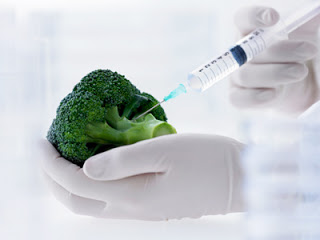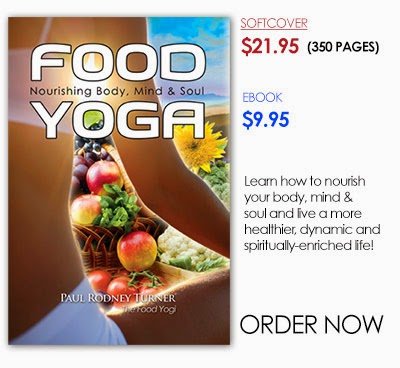The destiny of nations depends on the manner
in which they feed themselves. – Jean-Anthelme Brillat-Savarin [1]
Don’t be fooled into thinking your government or these corporation actually care about your well-being. They don’t. Their principle agenda is the share price of company stock.”It’s crucial to reclaim control over your food choices. But how can you achieve this?”
It’s time to voice your concern or lead the way by practical action. Start acting according to your conscience rather than your wallet. Consider whether saving money on genetically modified foods is worth the potential health risks, given that food’s primary purpose is to enhance health. By purchasing locally grown organic produce, you not only invest in your health but also support a small group of conscious farmers who are standing up and making a positive difference in this world.
The Dirty Dozen
specializes in providing useful resources like the EWG’s Shopper’s Guide to Pesticides™ to consumers while simultaneously pushing for national policy change. The EWG’s “Dirty Dozen” [2] list of foods most likely to have high pesticide residues has been regularly updated since 1995.
1. Apples
2. Celery
3. Strawberries
pests and therefore have a long history of pesticide residue. To my knowledge, they have been on this list since 1995. If you buy them out of season, you can be sure that they’ve been imported from countries that have far less stringent regulations for pesticide use. Up to 59 pesticides have been detected in
residue on strawberries, including Captan [5], which has been linked to cancer in the past, and only recently listed as “not likely” by the EPA. If you can’t find organic, try substituting with the far safer kiwi fruit.
4. Peaches
5. Spinach
6. Nectarines (imported)
7. Grapes (imported)
8. Bell peppers
9. Potatoes
10. Blueberries (domestic)
11. Lettuce
12. Kale/Collard Greens
from use as a drug include nausea, vomiting, loss of appetite, diarrhea, dizziness, drowsiness, or headache.
Emergency Planning List of Extremely Hazardous Substances. It is highly toxic to bees. See: http://extoxnet.orst.edu/pips/phosmet.htm
FAQ
Q: What is the “Dirty Dozen” in food?
A: The “Dirty Dozen” refers to a list of fruits and vegetables that are most likely to contain high pesticide residues. Avoiding these can reduce exposure to harmful chemicals.
Q: Why should I avoid genetically modified foods?
A: Genetically modified foods may pose health risks and contribute to environmental issues. Opting for organic or non-GMO options can support better health and sustainability.
Q: How can I support sustainable farming?
A: You can support sustainable farming by purchasing locally grown organic produce, reducing food waste, and advocating for policies that promote ethical agricultural practices.
Q: What are some safe non-organic produce options?
A: Some non-organic produce with lower pesticide residues include asparagus, avocado, cabbage, and watermelon. These are generally safer to consume in conventional form.
Q: How does buying organic produce benefit the environment?
A: Organic farming practices reduce chemical use, promote biodiversity, and improve soil health, contributing to a healthier environment.
Q: What are the health benefits of eating organic foods?
A: Organic foods typically offer higher nutrient levels and are free from harmful pesticides and GMOs, supporting improved health and well-being.
Q: How can I make healthier food choices on a budget?
A: Prioritize buying organic versions of the “Dirty Dozen,” and choose conventional options for produce with lower pesticide risks. Buying in bulk and seasonal produce can also help save money.
Q: What impact do food choices have on society?
A: Food choices can influence public health, environmental sustainability, and economic systems, making conscious decisions vital for societal well-being.
Q: Why is it important to be informed about food sources?
A: Being informed about food sources helps you make healthier choices, supports ethical practices, and reduces environmental impact.
Q: How can I start growing my own food?
A: Begin with easy-to-grow plants like herbs or tomatoes, use containers if space is limited, and educate yourself on gardening techniques for a successful start.
Q: What is the importance of the “Dirty Dozen” list?
A: The “Dirty Dozen” list highlights produce with high pesticide residues, helping consumers make safer choices by opting for organic alternatives.
Q: How can I reduce my exposure to pesticides in food?
A: Avoiding the “Dirty Dozen” and choosing organic options for these items can significantly reduce pesticide exposure.
Q: What are the benefits of choosing organic produce?
A: Organic produce is often richer in nutrients, free from harmful pesticides and GMOs, and supports environmental sustainability.
Q: Why is it important to be informed about food sources?
A: Being informed helps you make healthier choices, supports ethical practices, and reduces environmental impact.
Q: How does buying organic produce benefit the environment?
A: Organic farming reduces chemical use, promotes biodiversity, and improves soil health, contributing to a healthier environment.
Q: What are some safe non-organic produce options?
A: Asparagus, avocado, cabbage, and watermelon are generally safer to consume in conventional form due to lower pesticide residues.
Q: How can I support sustainable farming?
A: Support sustainable farming by purchasing locally grown organic produce, reducing food waste, and advocating for ethical agricultural practices.
Q: What impact do food choices have on society?
A: Food choices influence public health, environmental sustainability, and economic systems, making conscious decisions vital for societal well-being.
Q: Why should I avoid genetically modified foods?
A: Genetically modified foods may pose health risks and contribute to environmental issues. Opting for organic or non-GMO options can support better health and sustainability.
Q: How can I start growing my own food?
A: Begin with easy-to-grow plants like herbs or tomatoes, use containers if space is limited, and educate yourself on gardening techniques for a successful start.
Q: What are the health benefits of eating organic foods?
A: Organic foods are often richer in nutrients and free from harmful pesticides and GMOs, promoting better overall health and well-being.
Q: How can I make healthier food choices on a budget?
A: Prioritize buying organic versions of the “Dirty Dozen,” and choose conventional options for produce with lower pesticide risks. Buying in bulk and seasonal produce can also help save






Leave a Reply
You must be logged in to post a comment.